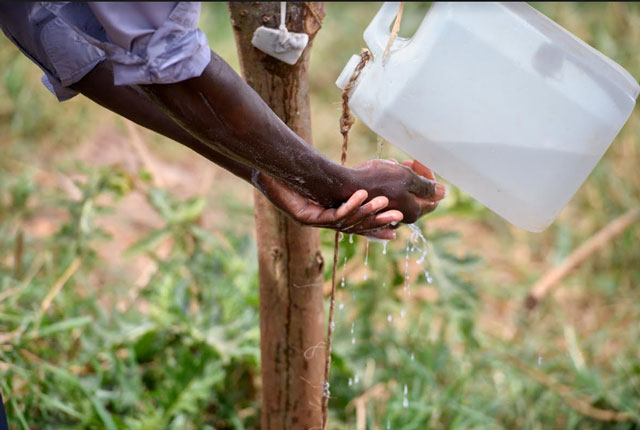
In Uganda, access to hand washing with soap at household level stands at 38% in rural areas
Kampala, Uganda | THE INDEPENDENT | Around three in 10 people still do not have hand washing facilities with water and soap available at home although hand washing with soap is critical in the fight against infectious diseases, including COVID-19. Another 670 million people do not have any facility at all.
The situation is worst in the least developed countries, with over 6 in 10 people without access to basic hand hygiene, UNICEF warned on Global Hand washing Day, today.
Latest estimates show that two in five schools worldwide do not have basic hygiene services with water and soap, affecting 818 million students, of which 462 million attend schools with no facility at all, and seven out of 10 schools in Least Developed Countries have no place for children to wash their hands.
Also, one in three healthcare facilities worldwide does not have hand hygiene facilities at points of care where the patient, healthcare worker, and treatment involve contact with the patient.
In Uganda, access to hand washing with soap at household level stands at 38% in rural areas according to figures for the financial Year 2019/2020 following a two percentage point increase from 36 per cent in the year 2018/19. Coverage in urban areas increased to 61.1 per cent from 40 per cent during the same period, according to the Water and Environment Sector Performance Sector Report 2020.
Hand washing with soap coverage is highest in the Northern region, followed by West Nile, Central, Western, Eastern, and lowest in the Karamoja sub-region. Despite the improvement in the hand washing coverage in schools by 16 percentage points from 42 per cent reported last in the 2018/19 financial year, to 58 per cent in 2019/2020, progress remains slow.
“Global response efforts to the pandemic have created an unprecedented time for hand hygiene. Yet progress remains far too slow for the most vulnerable, underserved communities,” said UNICEF WASH Director Kelly Ann Naylor. “Hand hygiene cannot be viewed as a temporary provision to manage COVID-19.
UNICEF urges governments to commit to providing hand hygiene, not as a temporary response to the pandemic, but as an investment in public health and economic resilience.
Globally, current progress rates must quadruple to reach universal hygiene by 2030. In the least developed countries, the rate of progress would need to increase ten-fold, and in fragile contexts, it would need to accelerate by a factor of 23.
The cost to provide hand hygiene in all homes in 46 of the world’s least-developed countries by 2030 is an estimated USD 11 billion. The cost to governments for hygiene promotion are estimated to be equal to 25 cents per capita per year.
“Further long-term investment in water, sanitation and hygiene can help prevent the next health crisis from coming. It also means fewer people falling ill with respiratory infections, fewer children dying from diarrheal diseases, and more pregnant mothers and newborns protected from preventable conditions like sepsis.” UNICEF says.
The latest joint UNICEF and WHO report identifies five accelerators that can enable governments to rapidly scale up access to hand hygiene, including good governance, smart public finance, capacity building, consistent data, and innovation.
****
URN
 The Independent Uganda: You get the Truth we Pay the Price
The Independent Uganda: You get the Truth we Pay the Price


